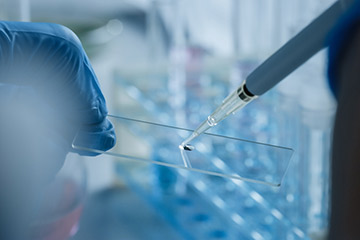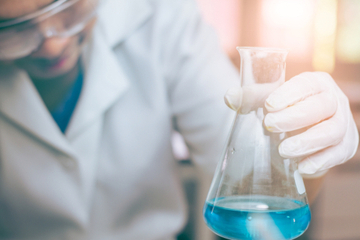Teva is successful in patent case about multiple sclerosis drug
Teva has been successful in its application for a preliminary injunction against the sale of a generic drug marketed by pharmaceutical company Mylan. Plesner represented Teva during the legal proceedings.
The case concerned the protection of a special dosage regime for the treatment of relapsing forms of multiple sclerosis by injection of 40 mg glatiramer acetate three times a week. More specifically, the issue of the dispute was Mylan’s offering of the generic drug Copemyl, which in Teva’s opinion entailed an infringement of Teva's patent rights.
The principal issue was whether Teva’s patents were invalid. During the proceedings, Mylan claimed that the patents were invalid due to lack of disclosure, lack of novelty and lack of inventive step. Mylan did not dispute that if the patents were valid, they would be infringed by Mylan’s drug Copemyl. However, Mylan claimed that Teva had forfeited the possibility of getting a preliminary injunction due to passivity, as Teva did not apply for a preliminary injunction until Mylan had been awarded a public contract, several months after Mylan had registered a price for the drug Copemyl on medicinpriser.dk.
Preliminary injunction granted
On 15 March 2019 the Danish Maritime and Commercial High Court made a ruling in the matter and granted a preliminary injunction against the offering and sale of Mylan’s drug.
As for the validity of Teva’s patents, the Court noted that the patents were granted by the EPO following an examination of whether the conditions for granting the patents were fulfilled. Accordingly, there is a presumption that the patents are valid. Further, the Court found that this presumption is not undermined by any decisions by the EPO. Nor could Mylan’s opinions about Teva’s patent strategy undermine the presumption that the patents are valid.
Based on the extensive evidence produced during the proceedings, the Maritime and Commercial High Court reached the conclusion that there was not a sufficient basis for establishing that the patents were invalid. Accordingly, Teva had rendered it probable that Teva's patents were valid and were infringed.
As for passivity, the Court emphasised that hospital drugs can only be sold in the Danish market if you participate in and are awarded a contract in a procurement by Amgros (the pharmaceutical procurement service for the regional authorities in Denmark). Accordingly, the Court did not find that Mylan’s registration of Copemyl on medicinpriser.dk could be deemed to be an offering for sale in the ordinary sense. Since Teva had filed the application for a preliminary injunction 1,5 month after it had been announced that Mylan had been awarded the contract, the Court did not find that Teva been passive.
On this background the Maritime and Commercial High Court granted a preliminary injunction against Mylan’s offering and sale of Copemyl.
It is not known at this time whether the ruling will be appealed.
Attorney-at-Law, Partner Mikkel Vittrup and Attorney-at-Law, Partner Jeppe Brinck-Jensen conducted the case on behalf of Teva.







